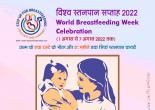- Skip to main content
- Skip to navigation
- Screen Reader Access
- Text Size
- Select Theme Default Theme Yellow Theme Pink Theme Blue Theme
- हिंदी में
- Home
- Programmes & Schemes
- National Blindness Control Programme
National Blindness Control Programme
Introduction:
The Programme is 100% centrally sponsored. The main cause of Blindness is Cataract which is approximately 62% in the country. In Uttaranchal the prevalence rate of Blindness is below 1%, which is among 1st 10 States of the country


Objectives:
To provide high quality eye care to public.
Strengthen Eye care service in outreach area.
To decrease backlog by pointing the blind persons and provide service.
Strengthen service by providing quality equipments, other goods and training of medical/paramedical staff.
Precautionary steps to avoid blindness due to Cataract
To prepare Village Blindness Register at every village with help of BHW/ANM/AWW.
Referral for cataract operation by conducting screening camps.
To refer patients suffering from Cataract & Free IOL implantations at well equipped hospitals.
After the operation follow up and eye testing is suggested.
Different activities under National Blindness Control Programme:
Cataract Operation
School Eye Screening Programme
It is estimated that 6% to 7% Children have problems with their eye sight affecting their participation and learning at School. This can be easily corrected by a pair of spectacles
Eye Donation Fortnight Is Observed Every Year From 25th AUG to 8th SEP
Approx. 1.5 million Corneal Blind People in the Country and there are 40 thousands new cases every year in which majority cases are identified in young and productive adult age groups.
Sight can be restored only by corneal transplantation. We need around 75,000 to 1,00,000 corneas per year for transplantation to clear the back log.
25 to 30 thousand eyes are collected every year, this is negligible as compared to the need.
Earlier focus on promoting pledging for eye donation has definitely increased public awareness about usefulness of eye donation in restoring vision of those who are blind due to corneal disease.
Corneal Blindness is important as it mostly occurs in children and productive adult age. Effective intervention may lead to substantial reduction in corneal blindness and decreased demand of corneal transplantation.Common causes of corneal blindness are due to Vitamin - A deficiency infection, injury & malnutrition.
There is no direct relationship between pledging for eye donation and actual collection of donated eyes. Only 1% of total number who pledge their eyes actually donate them.Hence Hospital corneal retrieval programme has been started at L.V. Prasad Eye Institute, Hyderabad. Under this programme hospital staff is being trained as Grief Counselors for motivating relatives of terminally ill patients, accident victims and other grave illnesses to donate eyes of their relatives.
Donated eyes need to be removed within 6 hours of death of the individual. Eye removal procedure takes 10 to 15 minutes. Donated eyes is to be preserved in specific solutions stored in eye banks and utilized for transplantation at cornea grafting centres within 72 hours.








